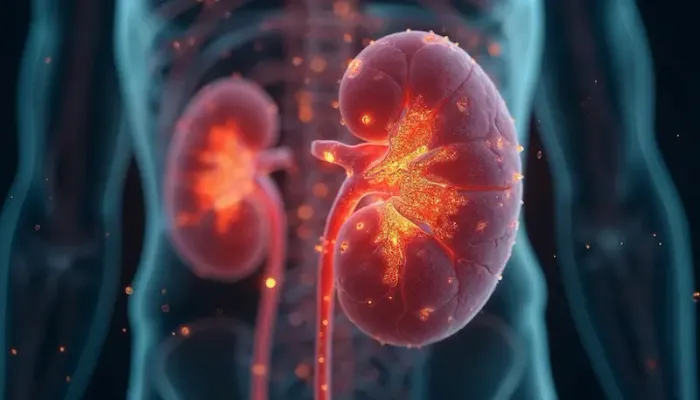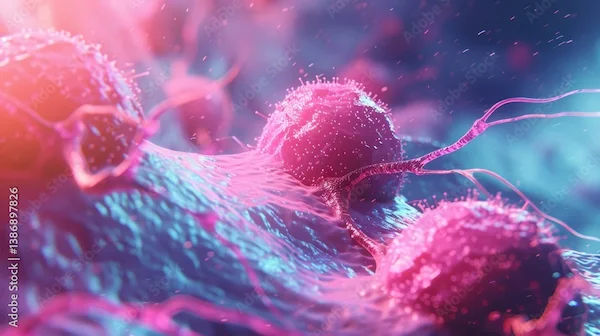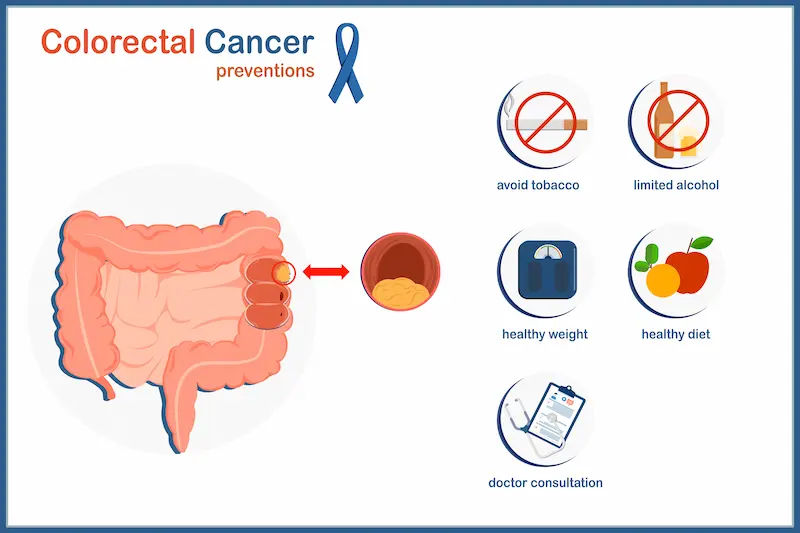Understanding Kidney Cancer Signs and Symptoms
Learn the key signs and symptoms of kidney cancer, including blood in urine, lower back pain, and fatigue. Early detection is crucial for effective treatment and better outcomes.


Kidney cancer is a serious health condition that affects thousands of people every year. While the thought of cancer can be scary, understanding the signs and symptoms can help in early detection and better treatment outcomes. This article will guide you through the basics of kidney cancer, its symptoms, causes, and steps you can take to manage your health.
What is Kidney Cancer?
Kidney cancer occurs when abnormal cells in one or both kidneys grow uncontrollably, forming a tumour. The kidneys are vital organs responsible for filtering waste from the blood and producing urine. When cancer develops, it can interfere with these functions and spread to other parts of the body if not treated early.
Common Signs and Symptoms
Kidney cancer often does not show symptoms in its early stages, which is why regular check-ups are important. However, as the disease progresses, the following signs may appear:
1. Blood in Urine (Hematuria): One of the most noticeable symptoms, urine may appear pink, red, or cola-colored.
2. Persistent Pain in the Side or Lower Back: A dull ache or sharp pain that doesn’t go away, usually on one side.
3. Unexplained Weight Loss: Losing weight without changes in diet or exercise.
4. Fatigue: Feeling unusually tired or weak, even after rest.
5. Loss of Appetite: Not feeling hungry or full quickly after eating small amounts.
6. Fever or Night Sweats: Persistent fever without infection or excessive sweating at night.
7. Swelling in Legs or Ankles: Due to fluid retention caused by kidney dysfunction.
If you experience any of these symptoms, especially blood in urine or persistent pain, consult a doctor immediately.
What Causes Kidney Cancer?
While the exact cause is not always clear, certain risk factors increase the likelihood of developing kidney cancer:
- Smoking: Smokers are at higher risk than non-smokers.
- Obesity: Excess weight can lead to hormonal changes that promote cancer growth.
- High Blood Pressure: Poorly controlled hypertension may contribute.
- Family History: A genetic predisposition can play a role.
- Exposure to Harmful Chemicals: Workplace exposure to substances like asbestos or cadmium.
- Chronic Kidney Disease: Long-term dialysis patients have a higher risk.
Consult Top Specialists
How is Kidney Cancer Diagnosed?
If your doctor suspects kidney cancer, they may recommend:
- Urine Tests: To check for blood or abnormal cells.
- Blood Tests: To assess kidney function.
- Imaging Tests: Ultrasound, CT scan, or MRI to detect tumours.
- Biopsy: A small tissue sample may be taken for further testing.
Early diagnosis improves treatment success, so don’t ignore symptoms.
Treatment Options
Treatment depends on the stage and severity of cancer. Common approaches include:
- Surgery: Removing part or all of the affected kidney.
- Radiation Therapy: Using high-energy rays to kill cancer cells.
- Targeted Therapy: Drugs that attack specific cancer cells.
- Immunotherapy: Boosting the immune system to fight cancer.
Your doctor will recommend the best option based on your condition.
Lifestyle Tips for Prevention and Management
While not all cases can be prevented, these steps can lower your risk:
1. Quit Smoking: Reduces cancer risk significantly.
2. Maintain a Healthy Weight: Exercise regularly and eat a balanced diet.
3. Control Blood Pressure: Monitor and manage hypertension with your doctor’s help.
4. Stay Hydrated: Drinking enough water supports kidney function.
5. Limit Alcohol: Excessive drinking can harm kidney health.
6. Eat a Kidney-Friendly Diet: Reduce salt, processed foods, and include fruits, vegetables, and whole grains.
When to See a Doctor?
If you notice any unusual symptoms, especially blood in urine or persistent pain, seek medical advice promptly. Early detection saves lives.
If you’re concerned about kidney health or experiencing symptoms, Apollo24|7 offers expert consultations and diagnostic tests. You can easily book an appointment online and get the care you need from trusted specialists.
Conclusion
Kidney cancer can be daunting, but awareness and early action make a big difference. Pay attention to your body, adopt a healthy lifestyle, and don’t hesitate to seek medical advice if something feels off. Your health is worth it!
Stay informed, stay proactive, and take care of your kidneys—they work hard for you every day.
Consult Top Specialists
Consult Top Specialists
Dr Ch Sashidhar
Nephrologist
20 Years • MBBS, MD General Medicine, DNB, Nephrology
Secunderabad
Apollo Hospitals Secunderabad, Secunderabad

Dr. Pardha Saradhi
Nephrologist
9 Years • MBBS, MD-DNB (Gen. Med.), DNB (Nephro)
Hyderabad
Apollo Hospitals D R D O kanchanbagh, Hyderabad
(50+ Patients)

Dr. Manju Kamal
Nephrologist
12 Years • MBBS,MD(General Medicine), DNB,DM(Nephrology)
Angamaly
Apollo Hospitals Karukutty, Angamaly

Dr. Kity Sarkar
Nephrologist
15 Years • MBBS,MD(Genl. Med.), DrNB(NEPHROLOGY)
Kolkata
Dr. Kity Sarkar's Clinic, Kolkata

D. Akshay Zalavadiya
Nephrologist
3 Years • MBBS, MD, DM Nephrology
Ahmedabad
Beacon kidney consult, Ahmedabad
Consult Top Specialists
Dr Ch Sashidhar
Nephrologist
20 Years • MBBS, MD General Medicine, DNB, Nephrology
Secunderabad
Apollo Hospitals Secunderabad, Secunderabad

Dr. Pardha Saradhi
Nephrologist
9 Years • MBBS, MD-DNB (Gen. Med.), DNB (Nephro)
Hyderabad
Apollo Hospitals D R D O kanchanbagh, Hyderabad
(50+ Patients)

Dr. Manju Kamal
Nephrologist
12 Years • MBBS,MD(General Medicine), DNB,DM(Nephrology)
Angamaly
Apollo Hospitals Karukutty, Angamaly

Dr. Kity Sarkar
Nephrologist
15 Years • MBBS,MD(Genl. Med.), DrNB(NEPHROLOGY)
Kolkata
Dr. Kity Sarkar's Clinic, Kolkata

D. Akshay Zalavadiya
Nephrologist
3 Years • MBBS, MD, DM Nephrology
Ahmedabad
Beacon kidney consult, Ahmedabad



